Financial Communication Summit 2019
On 28/29 November 2018, the 3rd Financial Communication Summit took place in the ‘Alte Börse’ in Frankfurt am Main at the invitation of Deutsche Börse AG. 30 invited guests – including Heads of Investor Relations and Corporate Communications as well as selected communication experts from business and science – will discuss current research results and challenges as well as trends in capital market communications.
Study “CEO and CFO in Financial Communication and Investor Relations”
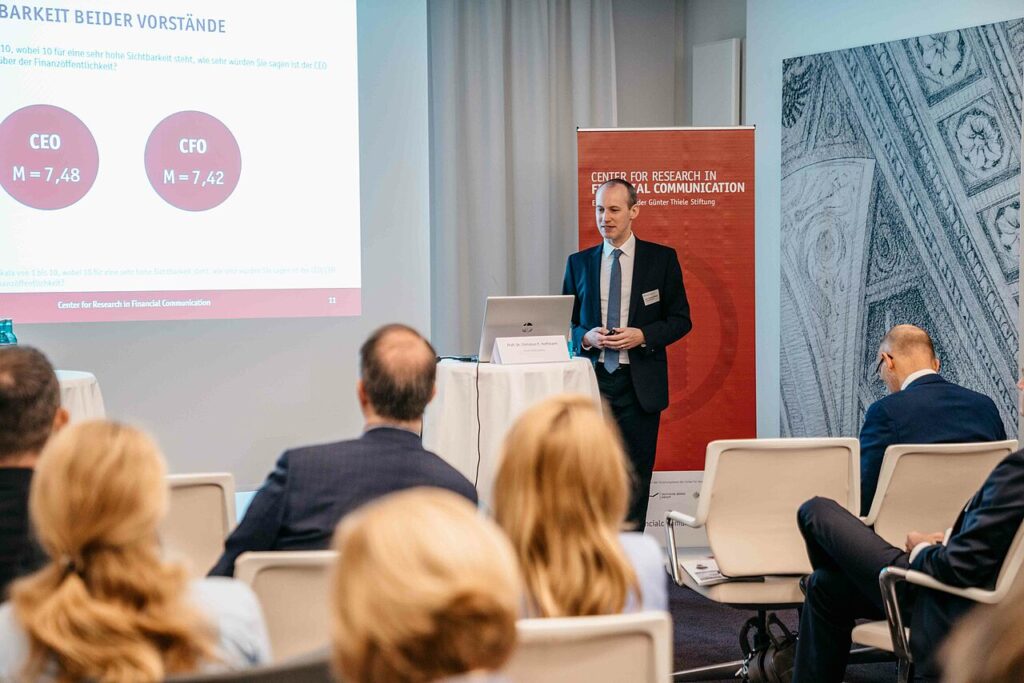
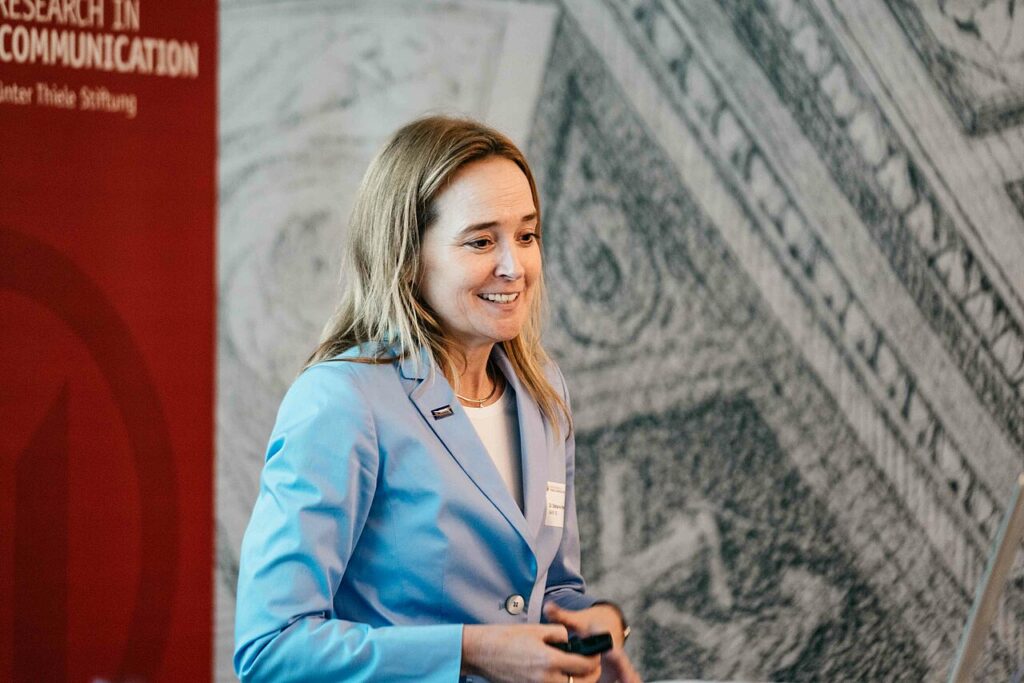
The study “CEO and CFO in Financial Communications and Investor Relations” focuses on the integration and positioning of the two Management Board members within capital market communications. Experts in Investor Relations and Financial Communications (on the Corporate Communications side) of the largest listed companies in Germany, Austria and Switzerland were surveyed.
Dr. Stefanie Wettberg provided insights into the practice of management board communication vis-à-vis the capital market. In this context, she also discussed the results of the study “CEO and CFO in Financial Communication and Investor Relations”. Among other things, she explained the division of topics and responsibilities at BASF SE.
From GSE to ESG? The role of sustainability in capital market communication
- Oliver Maier (Bayer AG)
- Kristina Jeromin (Deutsche Börse AG)
- Tim Albrecht (DWS)
- Prof. Dr. Thomas Berndt (Universität St. Gallen)
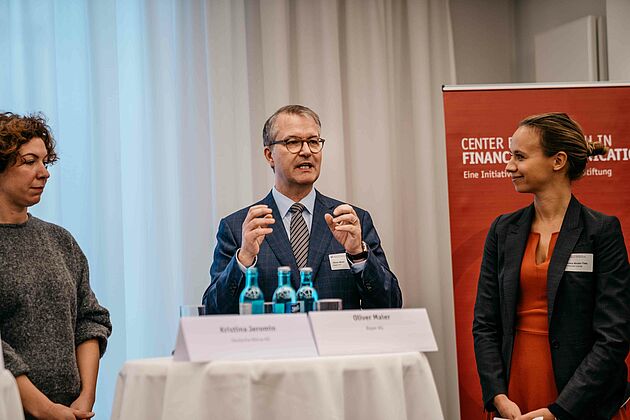
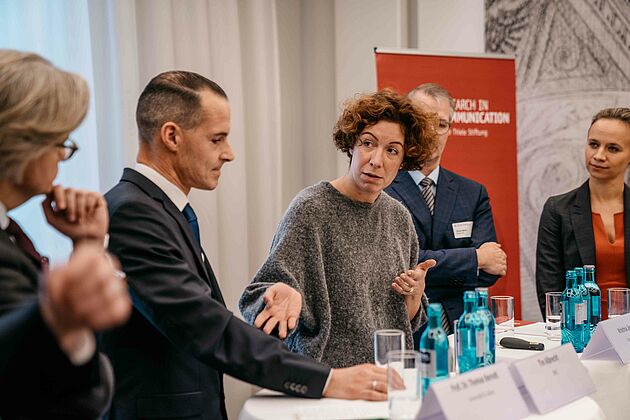
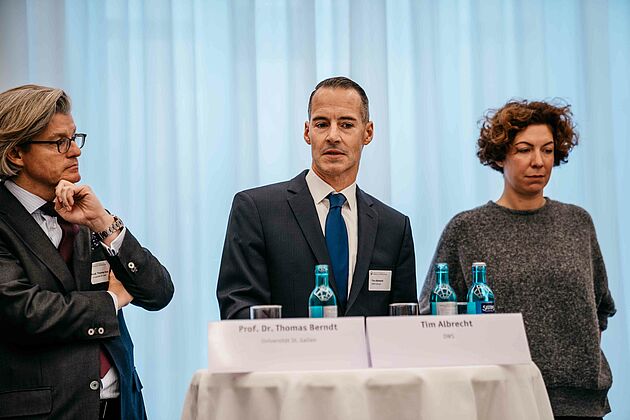
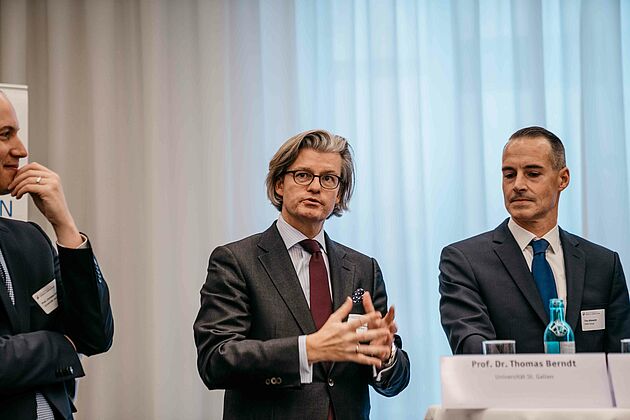
The communication of non-financial information to the financial community is becoming increasingly important. The focus is on the three elements: Environmental, Social and Governance Data (ESG). Investors demand detailed information on aspects of sustainability. The panel discussion focused on the interface between corporate strategy, investor relations and sustainability.
Oliver Maier (Bayer AG) reported on his experiences and challenges in the exchange with the capital market on sustainability issues. He also appealed to capital market participants to comprehensively appreciate sustainability against the background of the history, industry and development of an issuer. Kristina Jeromin (Deutsche Börse AG) pleaded for close integration of corporate strategy and sustainability to ensure competitiveness. She was convinced that capital market participants take material sustainability indicators into account in order to gain a comprehensive understanding not only of the risks, but also of the potential of a business model.
Tim Albrecht (DWS) shared his expectations of corporate sustainability communication and spoke about the challenges from an investor perspective. This included not only data quality, but also the consideration of numerous ESG indicators. Albrecht reported on the expansion of sustainable asset management offerings, but also warned of the risks of possible divestments of such portfolios in the event of inadequate ecological sustainability. Professor Berndt (University of St. Gallen) supplemented and discussed current study results, focusing in particular on the challenge of data quality and comparability. An increasing standardization of ESG data is an essential prerequisite for a reliable assessment of sustainability.
The discussion focused on the importance of a credible link between corporate strategy and sustainability. In particular, the standardization of ESG data will play a central role. At present, there is still some uncertainty – both among issuers and investors. There was a consensus that sustainability is establishing itself as an important component of investment decisions.
Say on Pay: More transparency, awareness and conflicts due to ARUG II?
- Dominik Slappnig (Sika AG)
- Claus Döring (Börsen-Zeitung)
- Thomas von Oehsen (ISS | Institutional Shareholder Services)
- Dr. Robert Vollrath (Hering Schuppener Consulting)
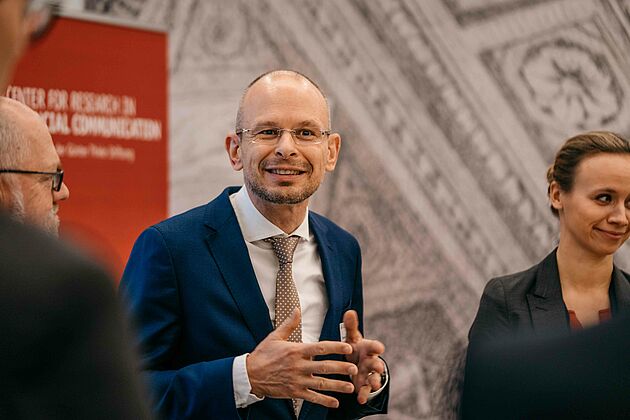
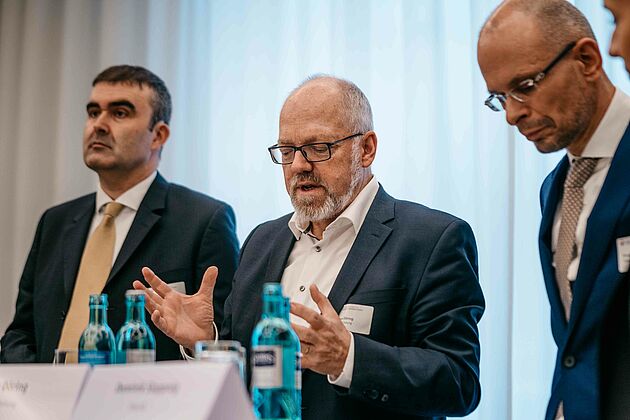
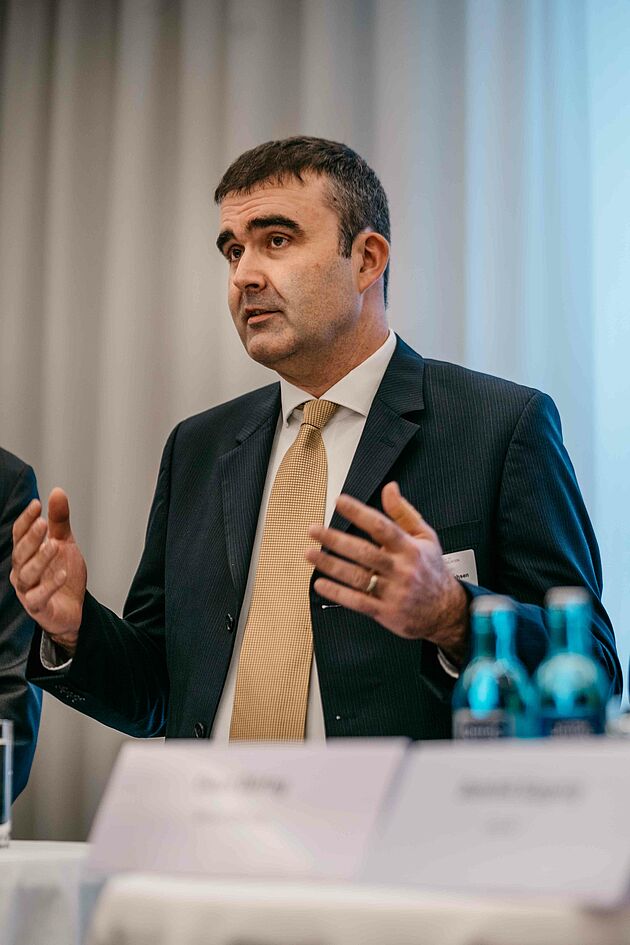
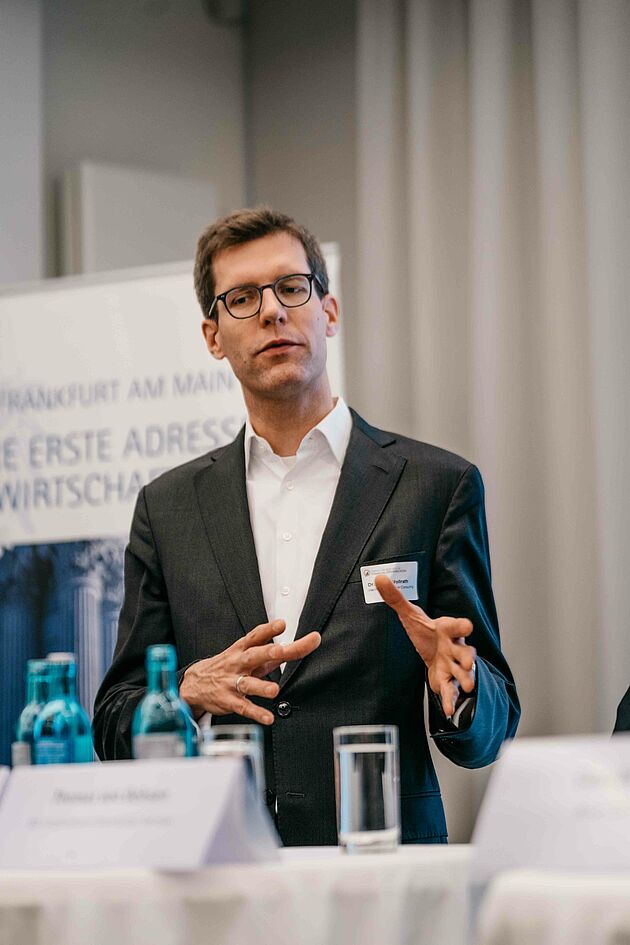
The Second Shareholders’ Rights Directive (ARUG II) brings some significant changes for issuers. Above all, the discussion focused on the provisions on shareholders’ rights of co-determination in the remuneration of the Supervisory Board and Management Board (“Say on Pay”). To what extent does this increase the transparency requirements for companies? What experience have companies in other countries had with similar regulation?
Dominik Slappnig (Sika AG) reported from the perspective of a Swiss issuer due to the so-called Minder initiative there has been a regulation on Say on Pay for Swiss companies since 2013. Since then, both investors and issuers have had to invest considerably more time in coordinating this issue. Claus Döring (Börsen-Zeitung) and Thomas von Oehsen (ISS) shared their views and future expectations on the communication of companies from the point of view of the specialist media such as voting rights consulting. Dr. Robert Vollrath (Hering Schuppener) discussed how well German issuers are already prepared for ARUG II.
One of the central topics of the discussion was the expectation of the various stakeholders of the company with regard to transparent communication on all aspects of remuneration. The focus was on a clear and understandable system of Management Board remuneration. While the level of remuneration is more likely to be discussed in public, the owners are primarily interested in the comprehensibility of the system and its incentive effects. Currently, many remuneration systems are too complex, and the incentives are not even clear to those affected.
In this context, it was discussed that the communication of the Chairman of the Supervisory Board – and also of other members of the Supervisory Board – had also gained in importance. ARUG II confirmed that remuneration is a central topic of governance commitment. There was critical discussion as to whether too much attention would not even be paid to this topic – to the detriment of other significant aspects of corporate governance.
Using Switzerland as an example, the experiences following the introduction of a Say on Pay system were presented. It was also discussed whether the actual objectives of the popular initiative had actually been achieved. In any case, there was no sign of a decline in the remuneration of the Board of Directors.
Finally, the panel participants took a look into the future: on the one hand, the expectations of the proxy advisors with regard to the companies were clearly presented. On the other hand, the panelists did not expect any extraordinary conflicts in the first relevant season of the Annual General Meeting in 2021. An important success factor for companies is to deal with the new requirements at an early stage and to enter into dialogue.